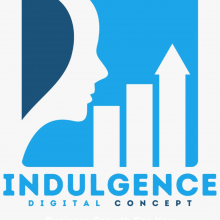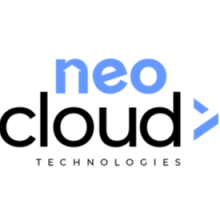
There are 24 Companies in Nigeria
that provide Disaster Recovery Services!
Nigeria’s ICT sector contributed 19.78% to the country’s GDP in 2024. The telecommunications segment accounts for the vast majority of this, at around $7.6 billion. Other important contributors are broadcasting, data center services, cloud, IT, and BPO. Nigeria’s combination of relatively stable governance, strategic location, and young and innovative population has made it an attractive destination for multinational companies.
Discover Top IT Companies in Nigeria specialized in Disaster Recovery and other related services. Find the best IT service providers for your projects.
Disaster recovery services are like a safety net for your business's data and operations. They help you prepare for unexpected events like natural disasters or cyberattacks, ensuring that you can quickly recover and continue your business even in challenging circumstances.
More than 327 verified IT companies specialize in providing disaster recovery services. These companies have expertise in creating and implementing strategies to protect your data and IT infrastructure. Well-known IT companies offering disaster recovery services include IBM, Dell Technologies, and Hewlett Packard Enterprise (HPE).
Handpicked companies • No obligation to hire • 100% risk-free
Featured Companies in Nigeria
This month, the following Disaster Recovery companies managed to provide an outstanding service and support. It's worth taking a look.
Xpertech Solutions is one of the leading ICT and renewable energy conglomerate providing professional ICT and renewable energy services.
An Innovative IT service provider specialized in Software Development, Blockchain Development, Product Design, Artificial Intelligence, and Training.
we deliver innovative tech solutions that drive online growth for businesses across Africa, Europe, Asia, Oceania, and America.
Explore Top Disaster Recovery Companies in Nigeria
We are a leading consulting and Training firm with very deep understanding of our customers' needs and we pride in the lasting solutions we provide.
Vsasf Nig Ltd (Vsasf Tech) is a computer software and IT service provider company. We offer ICT Courses to individuals and organizations in Nigeria.
Collaborate | Innovate | Create
OmoolaEx is a Nigerian IT consulting firm helping businesses navigate digital transformation through Strategic IT guidance & trusted implementation.
We specialize in advanced web solutions including web hosting, web development, and software development. We do provide SEO Visit us for more...
Surfclick Innovations Limited is a technology solutions provider, dedicated to empowering businesses with cutting-edge digital solutions.
Empowering Your Digital Future
Premier tech partner in sub-Saharan Africa, delivering quality solutions across CPG, Oil & Gas, Manufacturing, and more with proven expertise.
Empowering Enterprises with Innovative IT Solutions
We offer the best in Digital Advertising, Traditional Advertising, Brands Activation Business Consultancy.
A leading software development company using the latest technologies and agile methodologies to drive digital transformation for businesses.
innovation Hub
We provide bespoke and platform-based solutions to large, mid-size, and small businesses in Healthcare, Retail, Telecom, and other industries.
We offer the most professional IT outsourcing services, using the latest technologies with the full knowledge of our clients business needs.
Best Web Design Agency In Port Harcourt & Abuja.
At JST, we're dedicated to transforming ideas into cutting-edge digital solutions. As a leading software development company.
Street Heart Security helps organizations identify vulnerabilities in their systems.
BluDive Technologies is a digital solutions agency that helps corporate brands unlock the power of technology to serve their clients.
Services:
The Leading Cost-Effective Edge Cloud Infrastructure, Compute, Storage, Network, Backup & Disaster Recovery as a service provider within West Africa.
We are Information & Technology company where creativity, technology, and innovation are brought to bear on businesses.
Filter Disaster Recovery Companies in Nigeria by Cities
Find the right tech company near you or from a specific city. Some of the best companies might be located in smaller cities.
Find more Disaster Recovery companies around the world
TechBehemoths is the world's most advanced and user-friendly platform to match IT Companies with real clients without hustle.
The ICT Industry in Nigeria : 2025 Report
Nigeria’s ICT sector contributed 19.78% to the country’s GDP in 2024. The telecommunications segment accounts for the vast majority of this, at around $7.6 billion. Other important contributors are broadcasting, data center services, cloud, IT, and BPO.
Nigeria’s combination of relatively stable governance, strategic location, and young and innovative population has made it an attractive destination for multinational companies. Several notable firms, such as Oracle, IBM, Microsoft, Cisco, HP, and SAP, have offices in Nairobi, and some have based their entire African operations from these offices.
Why You Should Work With Nigerian IT Companies
Digital service providers in the cloud and BPO markets are primarily involved in the provision, rather than the development, of services, whereas Nigerian firms are more prevalent in the fintech and e-commerce markets. The physical technology required for the delivery of digital services is typically imported, and it is not clear that Nigeria could produce these products more efficiently.
A key strength in the digital services market is the acceptance of mobile services. Any consumer solution entering the market would have to be mobile-compatible. Mobile healthcare services are expected to grow particularly rapidly as the sophistication of these offerings increases.
In addition, the CEO of Toniceli considers that one of the competitive advantages Nigerian IT companies have compared to those established in neighboring countries is the challenging conditions. Here in Nigeria, we're used to working in challenging and stressful environments. This gives us grit, especially when faced with challenging projects. It's just a part of our nature to face challenges headlong and not to back down.
What to Pay Attention to When Working With Nigerian IT Companies and Web Agencies
On the consumer side, it is vital that any proposed digital service offering be mobile-compatible due to the prevalence of mobile usage in Nigeria. Furthermore, smartphone penetration in the region is steadily increasing, thus increasing the sophistication of viable digital service offerings.
Given the acceptance of fintech by the Nigerian population, a possible route to entry in the consumer market is to acquire one of the many smaller fintech firms in the industry. This would resolve some of the primary barriers to entry, most specifically bureaucratic red tape and a lack of local knowledge.
On the corporate side, the most effective route to entry is likely through partnerships with smaller local resellers. This model is already popular in the Nigerian market. A key differentiating feature here will be how well the service adapts to the Nigerian market.
How Reliable Are Nigerian-based IT Companies?
Considered to be one of the biggest African IT hubs, Nigerian web agencies and IT companies compete only with Ethiopian ones in terms of reliability. As many foreign companies have already invested and thus developed the local IT infrastructure and industry overall, Nigerian IT companies find it easier than other neighboring countries to enter the global market and provide their services at accessible prices.
How Does the Nigerian IT Industry Relate to the Neighboring Countries?
Nigeria is actively trying to establish itself as a key ICT hub in the East African region. The country appears to be making good progress in this regard, helped by having a strong connectivity infrastructure and a young, innovative population. Despite this, the country currently faces considerable political uncertainty, and issues surrounding the transparency of tenders remain a major barrier to growth.
Although Nigeria’s score in the Global Innovation Index 2024 is not high in absolute terms, it ranks 113th in the world. This supports the conjecture that businesses, government, and consumers will be receptive to new technologies, as ICT has already had a substantial impact on the Nigerian economy.
The Business Environment in Nigeria
The CEO of Toniceli - a leading Nigerian IT company, Oluwayomi Olabanjo, states that the Nigerian business environment is growing rapidly. Most business environments are still very much clustered in the city of Lagos, but over the years, there's been an expansion in economic clusters in other cities. There had been challenges in infrastructure, policies, power, and access to professional training and education. However, things have been getting better over time, especially with the coalition of private and public enterprises addressing these challenges headlong. I would say the biggest factor we've had working for us in the Nigerian market is the availability of youthful talent and the increasing flow of foreign and local capital into the market.
What Makes Nigeria Attractive for International IT Companies?
Oluwayomi Olabanjo mentions on this topic that what makes it attractive is the abundant supply of youthful talent. However, unstable government policies, infrastructure, and power shortages are challenges, making it unattractive for international IT companies.
Yet, the Nigerian Communications Commission had been doing quite a lot with the startup bill and also with the establishment of public-private incubator programs within the country. I really do believe they should be given credit for this.
Lagos, Ibadan - Best Cities for Doing IT business in Nigeria
Lagos, because it has always been the economic hub of the country, hence the IT industry has found it quite easier to experience growth in that space.
Ibadan due to the fact that it is a fast-growing economic hub and also, and there's less capital expense in setting up and running a company here. - mentioned Oluwayomi Olabanjo.
What is Disaster Recovery and what are its benefits for your projects?
Disaster recovery services are like a safety net for your business's data and operations. They help you prepare for unexpected events like natural disasters or cyberattacks, ensuring that you can quickly recover and continue your business even in challenging circumstances.
More than 327 verified IT companies specialize in providing disaster recovery services. These companies have expertise in creating and implementing strategies to protect your data and IT infrastructure. Well-known IT companies offering disaster recovery services include IBM, Dell Technologies, and Hewlett Packard Enterprise (HPE).
Disaster recovery service providers use a range of tools and technologies to safeguard data and ensure business continuity. These include backup and recovery software, cloud storage solutions, virtualization technologies, and monitoring systems. Popular cloud platforms like Amazon Web Services (AWS) and Microsoft Azure also play a crucial role in disaster recovery.
Disaster recovery services are typically included in a suite of services that also address business continuity and risk management. Other related services may include:
-
Business Continuity Planning: Developing comprehensive strategies to keep your business running during disruptions.
-
Cybersecurity Services: Protecting against cyber threats and data breaches, which are often a cause of disasters.
-
Risk Assessment: Identifying vulnerabilities and potential threats to your business.
-
Emergency Response Planning: Preparing for immediate actions in the event of a disaster.
-
Data Protection Services: Implementing data encryption, access controls, and data loss prevention measures.
Selecting the right IT company for disaster recovery services requires evaluating their experience, the comprehensiveness of their disaster recovery solutions, and their responsiveness in case of an emergency. Look for providers who offer tailored disaster recovery plans that align with your specific business needs and recovery time objectives (RTOs).
Disaster recovery service providers are essential for various projects and scenarios, including:
-
Data Centers: Ensuring the continuity of critical data center operations.
-
E-commerce Websites: Protecting online businesses from downtime due to technical issues or cyberattacks.
-
Healthcare Systems: Safeguarding patient records and medical systems to ensure uninterrupted care.
-
Financial Institutions: Meeting regulatory requirements for data protection and business continuity.
-
Manufacturing Plants: Minimizing production disruptions caused by equipment failures or supply chain interruptions.
Disaster recovery services are crucial for companies of all sizes and industries, including:
-
Small Businesses: Protecting essential data and ensuring minimal downtime.
-
Enterprises: Managing complex IT environments and maintaining regulatory compliance.
-
Healthcare Providers: Safeguarding patient records and critical medical systems.
-
Financial Institutions: Ensuring uninterrupted banking and financial services.
-
Government Organizations: Maintaining public services and data integrity during emergencies.
Disaster recovery is not a one-size-fits-all solution. It's essential to conduct a risk assessment and work with a disaster recovery service provider to develop a tailored plan that matches your business's specific needs and budget. Regular testing and updates of your disaster recovery plan are also crucial to ensure it remains effective as your business evolves.























